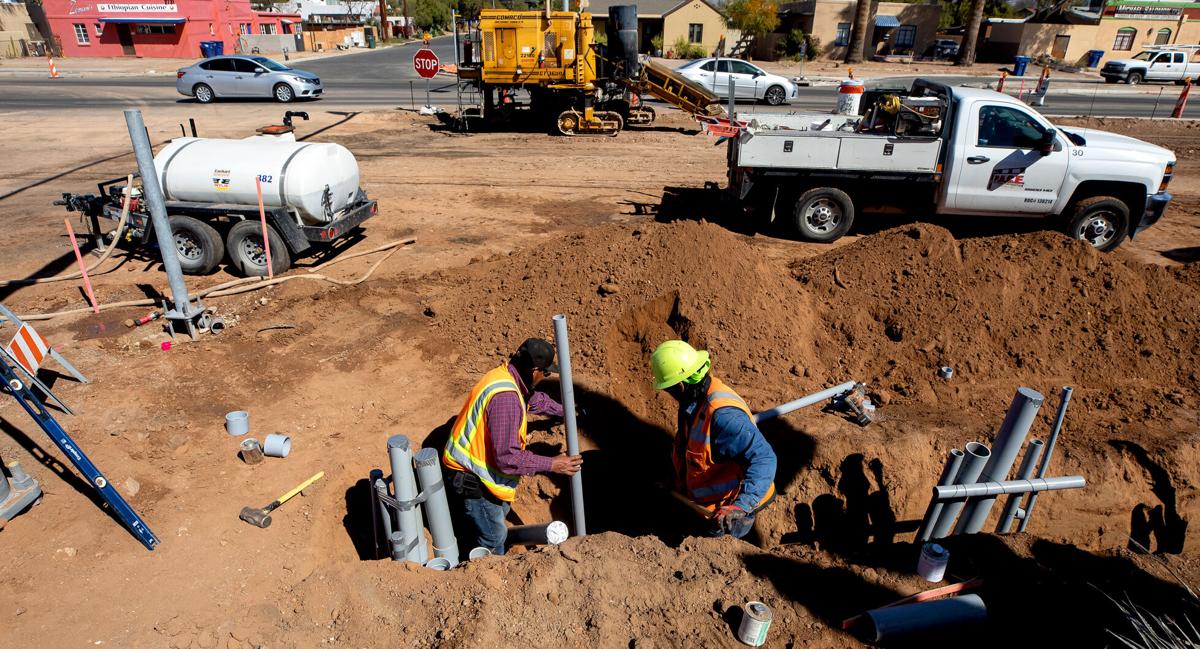There may be signs in Arizona that the Federal Reserve Board’s efforts are working to cool the economy and bring down inflation through higher interest rates.
New figures Thursday show the state’s seasonally adjusted unemployment rate hit 4.0% in September, an increase of two-tenths of a point.
At the same time, the most recent “quits’’ rate among Arizonans — the number of people who leave their jobs voluntarily — decreased to 2.6% from 3.0% in the prior month.
And the number of Arizonans collecting unemployment insurance for the week ending Oct. 7 was up 29.6% from the same time last year. That also was 12.0% higher than in 2019, before the pandemic.
But it’s not clear-cut that’s all tied to higher interest rates by the fed, said Doug Walls, labor market information director for the Arizona Office of Economic Opportunity.
“I would say it’s a mixed bag of getting a general sense of whether their policy is working or not,’’ he said of the Federal Reserve Board. “I would say maybe ‘yes’ and ‘no.’ ‘’
For example, he said, the state’s private sector added 14,800 jobs in September, a figure that’s above average. That followed two months of below-average gains.
And the number of job openings available, an indicator of companies hiring, was up a tenth of a point to 6.0%.
But that’s a month-over-month figure, Walls said.
“Looking at the longer term trends in the openings, the hiring and the quits rate, those have been coming down which would be an indication of less demand for jobs,’’ he said. “While job openings remain elevated above 2019 levels, they’re not where they had been in 2022.’’
As to the state’s rising unemployment rate, “that one is a tough one to interpret as well.’’
The state hit an all-time low unemployment rate of 3.4% in May.
“Even with the unemployment rate at 4 percent, that is still historically below average for Arizona,’’ Walls said.
“But it has increased for the last four months. And we have seen an increase in the unemployment rate come from the overall unemployed levels,’’ the number of people who say they are looking for work.
The slowdown in some sectors of the Arizona economy have been more impacted than others by the increase in interest rates, Walls said.
The general idea is that increasing borrowing costs has ripple effects, such as credit card interest going up and deterring consumers from making certain purchases. The cost of car loans also rises.
As demand decreases, prices should go down to attract more buyers.
It also drives up mortgage rates, making it more difficult for some people to qualify for loans.
Conversely, the interest rates that banks and credit unions offer could convince people to invest their funds rather than spend them, also cooling demand for goods and services.
The construction industry, for example, shed 1,300 Arizona jobs in September. That compares with a pre-pandemic average loss this time of year of 400 jobs.
Yet health-care employment has shown strong year-over-year gains, Walls said.
Elsewhere in the Arizona economy, retail employment was up 0.6% from August, though it is 0.9% less than last year.
Bars and restaurants added 1,800 jobs — 0.6% — month over month. Hotels and motels added 700 jobs, as the weather cools and Arizona becomes a travel destination.
Employment at private colleges, universities and trade schools jumped 10.3% in the past month.
But the state’s information sector lost 2,000 jobs between August and September, a drop not seen in at least a decade. Walls said there were losses in software publishing and companies that provide computing infrastructure such as cloud storage.





